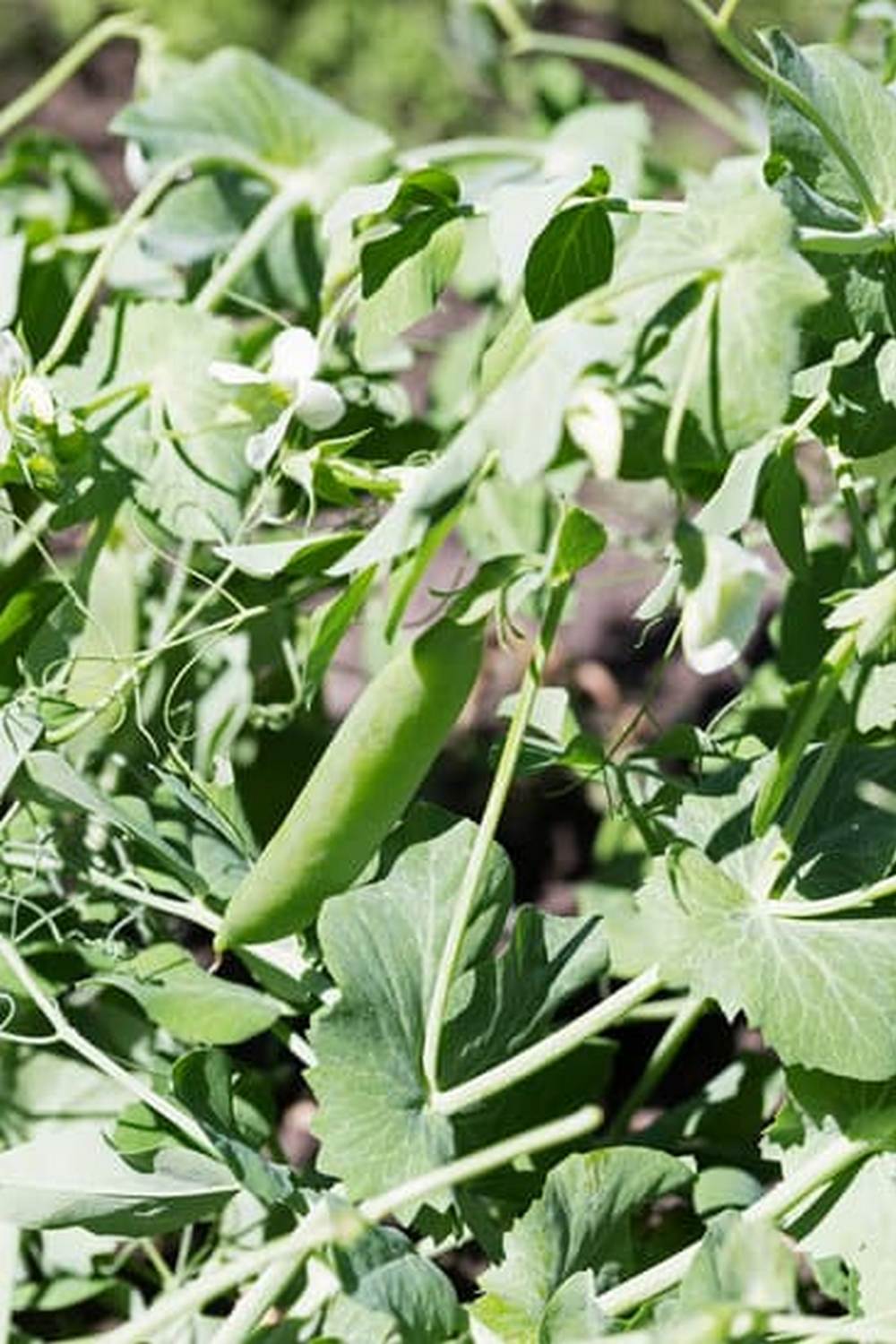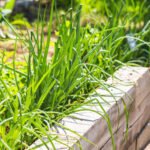Are you tired of finding your vegetable garden destroyed by pesky rabbits? It’s no secret that these furry creatures can wreak havoc on your hard work, leaving a trail of destruction behind. In this article, we will explore the issue of rabbits in vegetable gardens and provide solutions to keep them at bay. Whether you’re dealing with a small backyard plot or a larger garden, implementing a natural rabbit repellent is essential to protect your precious plants.
Rabbits may look cute, but the damage they cause in vegetable gardens is far from endearing. Their voracious appetite can lead to ruined crops, leaving you with little to enjoy after all your efforts. Not only do they consume the produce, but they also gnaw on stems and leaves, stunting growth and compromising the overall health of your plants. This presents a serious problem for gardeners who are keen on harvesting fresh vegetables and maintaining a thriving garden environment.
Thankfully, there are effective ways to deter rabbits from wreaking havoc in your vegetable garden without resorting to harmful chemicals or traps. Natural rabbit repellents offer a safe and eco-friendly solution for keeping these pests away from your plants.
By taking advantage of the benefits of natural rabbit repellents, you can protect your garden while promoting a healthy and sustainable gardening experience. In the following sections, we will explore homemade recipes as well as commercial options for natural rabbit repellents tailored specifically for vegetable gardens.
The Risks and Damages Caused by Rabbits in Vegetable Gardens
Rabbits may seem like harmless creatures, but they can wreak havoc in vegetable gardens, causing significant damage and posing risks to the overall health of the garden. These furry intruders are known for their voracious appetites and can quickly consume a wide variety of vegetables and plants. Additionally, rabbits are known carriers of diseases such as tularemia and giardiasis, which can contaminate the soil and pose health risks to humans.
The presence of rabbits in vegetable gardens can lead to a range of damages, including nibbled leaves, gnawed stems, and partially eaten fruits and vegetables. This not only diminishes the aesthetic appeal of the garden but also affects its productivity. Furthermore, rabbit droppings can add excess nitrogen to the soil, potentially causing imbalances in nutrient levels that impact plant growth.
Using natural rabbit repellent is an effective way to mitigate these risks and damages. By employing natural methods to deter rabbits from vegetable gardens, gardeners can protect their crops without resorting to harmful chemical solutions. Additionally, natural repellents are environmentally friendly and safe for the surrounding ecosystem, making them a sustainable choice for managing rabbit infestations.
The Benefits of Using Natural Rabbit Repellent
Rabbits can wreak havoc on vegetable gardens, causing significant damage to crops and posing a constant threat to harvests. Using natural rabbit repellent can help mitigate these risks and protect your garden from these furry pests.
One of the main benefits of using natural rabbit repellent for vegetable gardens is that it provides a safe and environmentally friendly solution to the problem. Many commercial chemical repellents may be harmful to the environment, pets, and even humans. Natural repellents, on the other hand, are non-toxic and pose no danger to other wildlife or domestic animals.
Another advantage of natural rabbit repellent is its cost-effectiveness. Many homemade repellent recipes use ingredients that are readily available at home or easily accessible, making them a budget-friendly option for gardeners. Additionally, even commercial natural rabbit repellents are often more affordable than their chemical counterparts.
Furthermore, natural rabbit repellents are easy to make and apply, making them a convenient choice for gardeners looking for an efficient solution to keep rabbits at bay. With simple ingredients like hot peppers, garlic, or vinegar, you can create your own homemade rabbit repellent in no time.
| Benefits | Details |
|---|---|
| Environmentally friendly | Non-toxic and safe for the environment, pets, and humans |
| Cost-effective | Homemade options are budget-friendly; commercial options are also affordable |
| Convenience | Easy to make and apply with simple ingredients |
Homemade Natural Rabbit Repellent Recipes for Vegetable Gardens
Rabbits can cause significant damage to vegetable gardens, making it essential for gardeners to find effective ways to repel them. While there are commercial options available, many people prefer using natural rabbit repellents to protect their crops. Homemade natural rabbit repellent recipes offer an eco-friendly and cost-effective solution for keeping rabbits at bay. Here are some easy recipes that you can try in your vegetable garden:
1. Garlic Spray: Rabbits dislike the strong smell of garlic, making it an excellent natural repellent. To make a garlic spray, simply mix minced garlic cloves with water and let it sit for at least 24 hours. Then strain the mixture and pour it into a spray bottle. Apply the garlic spray directly onto the leaves of your vegetables to keep rabbits away.
2. Hot Pepper Spray: Another effective homemade rabbit repellent is hot pepper spray. The capsaicin in hot peppers irritates rabbits’ sensitive noses and deters them from your garden. To make this spray, blend hot peppers with water and strain the mixture. Add a small amount of dish soap to help the solution adhere to plant leaves, then transfer it to a spray bottle and apply it generously around your garden.
3. Epsom Salt Solution: Epsom salt not only helps fertilize plants but also acts as a natural rabbit deterrent. Create a solution by dissolving Epsom salt in water and spraying it on your plants. This will not only protect your vegetables from rabbits but also provide them with much-needed nutrients.
These homemade natural rabbit repellent recipes are simple to make and can effectively protect your vegetable garden from rabbit damage without harming the environment or your crops.
Remember that these recipes should be applied frequently, especially after rainfall, to ensure their effectiveness in deterring rabbits from your garden.
Commercial Natural Rabbit Repellent Options for Vegetable Gardens
Rabbits can be a major nuisance for vegetable gardeners, as they are known to munch on a wide variety of plants. This can not only be frustrating but also lead to significant damage to your garden. Luckily, there are natural rabbit repellent options available that can help deter these pests without the use of harmful chemicals.
One popular natural rabbit repellent for vegetable gardens is a mixture of garlic and pepper. Rabbits are sensitive to strong odors, so a spray made from these ingredients can help keep them away from your plants. Another option is to use predator urine, such as that of foxes or coyotes, which can be purchased in some gardening stores. The scent of these predators will make rabbits think twice before entering your garden.
Another effective natural rabbit repellent for vegetable gardens is the use of plants with strong odors that repel rabbits. Some examples include marigolds, lavender, and catnip. Planting these throughout your garden can help create a barrier that deters rabbits from entering.
Finally, there are commercially available natural rabbit repellent options specifically designed for vegetable gardens. These products often contain natural ingredients like dried blood meal or putrescent egg solids, which give off scents that rabbits find offensive. These repellents typically come in granular or liquid form and can be easily applied around the perimeter of your garden.
| Natural Rabbit Repellent Option | Effectiveness |
|---|---|
| Garlic and pepper spray | Medium |
| Predator urine | High |
| Plants with strong odors (marigolds, lavender, catnip) | Low to medium |
| Commercially available repellents (dried blood meal, putrescent egg solids) | High |
Tips for Applying Natural Rabbit Repellent Effectively
As any gardener knows, dealing with rabbits in vegetable gardens can be a real challenge. These furry pests can wreak havoc on your carefully tended plants, causing significant damage and frustration. However, there are effective ways to deter rabbits from feasting on your vegetables without resorting to harmful chemicals or traps. One of the most popular and environmentally friendly solutions is using natural rabbit repellent.
Understanding How Natural Rabbit Repellent Works
Natural rabbit repellent works by emitting odors and tastes that are unpleasant to rabbits, discouraging them from munching on your garden plants. Some natural repellents use ingredients such as garlic, hot peppers, or predator urine to create an unappealing environment for rabbits.
Applying Natural Rabbit Repellent
When using natural rabbit repellent in your vegetable garden, it’s important to apply it correctly for maximum effectiveness. Be sure to read the instructions provided with the product or recipe you choose, and follow these tips for applying it effectively:
- Apply the repellent in the evening or early morning when rabbits are most active.
- Reapply after heavy rain or every few weeks for continued protection.
- Focus on areas where rabbits are known to enter the garden or where they have caused damage in the past.
By following these tips and using natural rabbit repellent effectively, you can enjoy a bountiful vegetable garden without worrying about rabbit damage. And best of all, you can achieve this without harming the environment or resorting to harsh chemicals.
Other Natural Methods for Deterring Rabbits From Vegetable Gardens
When it comes to keeping rabbits away from your vegetable garden, natural repellents are not the only option. There are several other natural methods that can help deter these furry pests and protect your precious crops.
Plant Rabbit-Resistant Plants
One effective way to keep rabbits at bay is by planting vegetables and herbs that they tend to avoid. Some examples of rabbit-resistant plants include onions, garlic, hot peppers, and tomatoes. These plants have strong smells or tastes that repel rabbits, making them less likely to munch on your garden.
Use Physical Barriers
Another natural method for deterring rabbits from your vegetable garden is by using physical barriers. This can include installing fences with small-gauge wire mesh around your garden to prevent rabbits from hopping in and feasting on your veggies. You can also use individual plant cages or covers made from wire or plastic to protect vulnerable plants from rabbit damage.
Encourage Natural Predators
Encouraging natural predators like birds of prey, foxes, or snakes can help keep rabbit populations in check. Creating a welcoming environment for these animals by providing nesting boxes or bird feeders can help attract them to your garden and keep rabbits at bay.
By incorporating these additional natural methods along with using natural rabbit repellent for vegetable gardens, you can create a more robust defense system against pesky rabbits and enjoy a thriving vegetable garden without their interference.
Conclusion
In conclusion, it’s clear that rabbits can cause significant damage to vegetable gardens, making it crucial to find the best natural rabbit repellent. The risks and damages caused by rabbits in vegetable gardens are extensive, from destruction of crops to creating costly repairs. However, using natural rabbit repellents offers an effective and eco-friendly way to protect your garden.
Homemade natural rabbit repellent recipes for vegetable gardens provide simple and affordable options for keeping rabbits at bay. Ingredients like garlic, pepper flakes, and vinegar can be combined to create a powerful deterrent that is safe for both plants and animals. Additionally, there are commercial natural rabbit repellent options available on the market that utilize natural ingredients to effectively repel rabbits from vegetable gardens.
For those seeking a rabbit-free garden experience, it’s important to apply natural rabbit repellent effectively. This includes following application instructions carefully and reapplying as needed, especially after heavy rain or watering. In addition to using natural repellents, consider incorporating other natural methods for deterring rabbits from vegetable gardens such as installing barriers or strategically planting certain herbs and flowers that repel rabbits.
By implementing these tips and choosing the best natural rabbit repellent for your vegetable garden, you can enjoy a thriving garden free from the damage caused by these furry pests. With the right approach and products in place, you can create a rabbit-free environment that allows your vegetables to thrive without interference. Finding the best natural rabbit repellent will ensure peace of mind and a bountiful harvest in your garden.
Frequently Asked Questions
What Is the Best Homemade Rabbit Repellent?
The best homemade rabbit repellent is a mixture of garlic, chili powder, and water. This potent solution can be sprayed on plants to deter rabbits from munching on them.
How Do I Get Rid of Rabbits in My Garden Naturally?
To get rid of rabbits in your garden naturally, you can use physical barriers like fences or chicken wire to keep them out. Planting strong-smelling herbs or flowers can also help repel them.
What Repels Rabbits From Eating Plants?
There are several things that can repel rabbits from eating plants. Some options include sprinkling blood meal or human hair around the garden, using a motion-activated sprinkler system, or applying commercial repellents containing predator urine scent.

If you’re looking to get into vegetable gardening, or are just looking for some tips on how to make your current garden better, then you’ve come to the right place! My name is Ethel and I have been gardening for years. In this blog, I’m going to share with you some of my best tips on how to create a successful vegetable garden.





